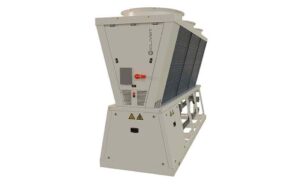AHRI challenges walk-in cooler standards
4th August 2014 USA: The US Department of Energy’s has again come under fire from the AHRI, with the industry body filing a court petition for a review of the DOE standards for commercial walk-in coolers and freezers
USA: The US Department of Energy’s has again come under fire from the AHRI, with the industry body filing a court petition for a review of the DOE standards for commercial walk-in coolers and freezers
The AHRI, the Air Conditioning, Heating and Refrigeration Institute, today filed a petition for review in the US Court of Appeals in response to the DOE’s final rule issued on June 3, 2014, regarding new energy conservation standards for commercial walk-in coolers and freezers.
Prior to this petition for judicial review, AHRI submitted a petition to DOE for reconsideration under the Administrative Procedures Act, requesting that the agency correct errors in the final rule.
“We are hopeful that the petition for reconsideration will lead to corrections in the final rule, and that the petition for review will be unnecessary,” said AHRI president and CEO Stephen Yurek.
AHRI was required to file a petition for review by August 4 to maintain its right to challenge the rule. AHRI will ask the court to hold the petition for review in abeyance until DOE responds to the petition for reconsideration.
Significant impact
The rule establishes, for the first time, minimum energy efficiency standards expressed in terms of annual walk-in energy factor for various equipment classes. The AHRI claims that these will significantly impact manufacturers and consumers of this equipment.
The AHRI argues that in the final rule the DOE set efficiency levels above the agency’s own determination of what the maximum technology is for some types of this equipment.
“This is in direct violation of the core principle of the Energy Policy and Conservation Act, which stipulates that efficiency rules be based on what is technologically feasible,” the Institute argues in its press statement.
“In addition, DOE made such substantial changes to the rule between the notice of proposed rulemaking and issuance of the final rule (including the addition of 200 pages to the supporting analysis document) that, in AHRI’s view, a supplemental notice of proposed rulemaking should have been issued to allow for additional stakeholder comment and review.”
Stephen Yurek added: “We have pointed out many times that our industry has a proud history of innovation, producing highly efficient, affordable HVACR and water heating equipment that increases the quality of life for all Americans. The equipment in question is no exception to that proud history, and we are disappointed that DOE chose to ignore the technical reality and declined to take the time to receive the input necessary to ensure the rule is based on accurate information and sound analysis. This has forced us to diverge from our preferred practice of collaboration and instead seek legal redress,” he added.
“We have collaborated with DOE and other government agencies for decades on energy efficiency standards that are economically justified and technologically feasible, that benefit consumers, and that will deliver actual energy savings rather than promote press release aspirations of energy savings,” Yurek said. “In issuing this final rule on WICF equipment, DOE exceeded its statutory authority and failed to comply with agency rulemaking requirements, and as a result we have no choice but to challenge the legality of the rule.”
At the end of May, the AHRI challenged the DOE’s energy conservation standards for commercial refrigeration equipment. In a petition for review in the US Court of Appeals, the AHRI claimed that the deadline for conformance would make it very difficult for large manufacturers to comply and virtually impossible for smaller companies. It also argued that in the case of some of the 49 product categories covered the specified efficiency level is not currently achieved by any models in the market.
Related stories:
 DOE faces court over impossible standards – May 30, 2014
DOE faces court over impossible standards – May 30, 2014
USA: The Air-Conditioning, Heating, and Refrigeration Institute claims that the Department of Energy’s new energy conservation standards for commercial refrigeration equipment may be impossible to meet. Read more…







